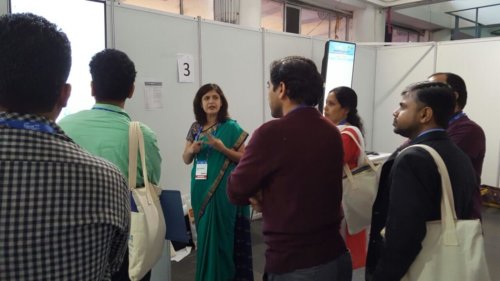A risk factor left unmonitored
Hypertension is a leading risk factor for mortality in India with more than 200 million people in the country estimated to have high blood pressure (BP). There is, however, very little awareness about this silent killer with 75% of the rural and 60% of the urban Indian population unaware of their hypertensive status. BP control in these patients is worse, 90% of the rural and 80% of the urban Indian population have a BP above recommended target values. This needs to be addressed by providing urgent attention towards provision of access to diagnosis, management and monitoring of hypertension at the primary care level. For clinical guidance on this issue, the Ministry of Health and Family Welfare, India recently published the standard treatment guideline on screening, diagnosis, assessment, and management of primary hypertension in adults in India. This guideline balances the best available evidence with what is operationally feasible and affordable in the context of the Indian public health system, by using a pragmatic adaptation methodology, which was recently published in the BMJ.
Steps towards improvement
The State Government of Kerala, with technical assistance from iDSI, is now planning to implement quality standards which are measurable prioritised recommendations from this guideline. It aims to increase identification of new cases of hypertension by providing opportunistic BP measurement to adults when they visit a primary healthcare center (also called family health center). It also aims to improve BP control in hypertensive patients by setting clinic BP targets. Technology will be used to measure adherance to these recommendations and track patient compliance and blood pressure control. The State Government of Kerala will be integrating indicators for hypertension in the Aadhar linked electronic medical records captured by Kerala Government’s eHealth project. This is in accordance to the cochrane review on ‘Interventions used to improve control of blood pressure in patients with hypertension’, which recommended that primary care clinics need to have an organized system of regular follow-up and review of their hypertensive patients.
Find out more
 This work on hypertension quality standards implementation in Kerala was recently presented by iDSI in the First NCD Congress in Chandigarh, India, you can view the presentation here. The final results from this work will be available next year and will contribute to the evidence base on how to improve detection and management of hypertension in low and middle income countries.
This work on hypertension quality standards implementation in Kerala was recently presented by iDSI in the First NCD Congress in Chandigarh, India, you can view the presentation here. The final results from this work will be available next year and will contribute to the evidence base on how to improve detection and management of hypertension in low and middle income countries.
